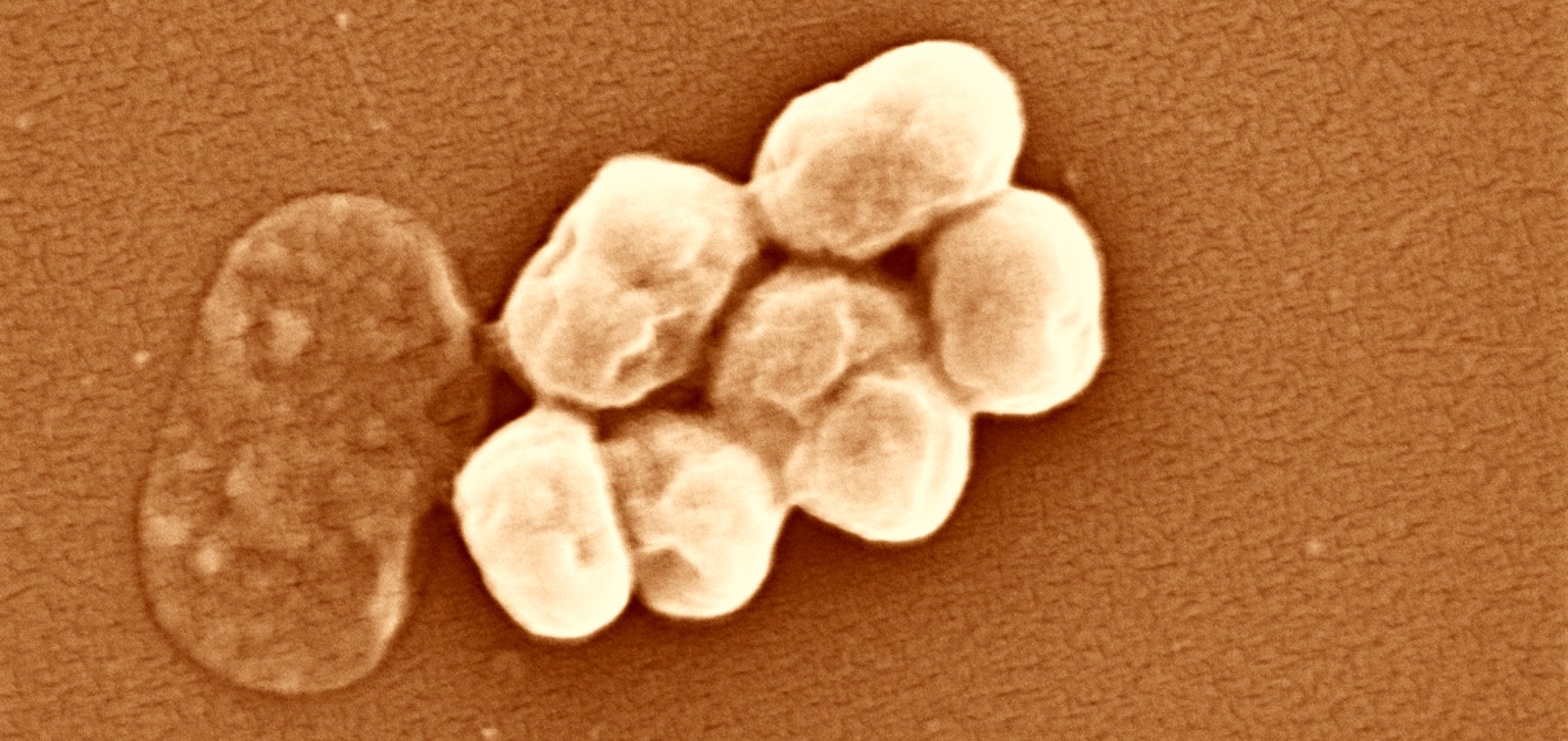A Promising New Synthetic Peptide to Combat Multidrug-Resistant Bacteria
Researchers from ISGlobal and Hospital Clínic use a naturally occurring peptide to design a synthetic molecule with potent antimicrobial activity and low toxicity
19.10.2022
A new synthetic peptide is a promising candidate to combat multidrug-resistant bacteria, particularly Acinetobacter baumannii, according to a study led by ISGlobal and Hospital Clínic. The peptide, designed from a naturally occurring molecule, showed potent antibacterial activity and low toxicity on human cells in vitro.
Infections by antibiotic-resistant bacteria represent one of the biggest threats to global health - in 2019 alone, they caused more than 1.2 million deaths. "The problem is that the traditional methodologies used to find new drugs have failed to produce a single new antibiotic in the last 30 years," explains Jordi Vila, director of the Antimicrobial Resistance Initiative at ISGlobal and head of the Microbiology Department at Hospital Clínic.
The development of new molecules with antimicrobial properties is increasingly inspired by the natural defence mechanisms used by plants or animals. Protegrins are a family of peptides between 16 and 18 aminoacids in length, which form part of the innate immune response (i.e. the first line of defence) in vertebrates. Protegrin 1 (PG-1) is active against a broad spectrum of microbes (bacteria, fungi and even some viruses) and is thought to work by punching "holes" in the membrane of these microorganisms. The problem is that it is also toxic to human cells at low concentrations, which complicates its potential therapeutic use.
In this study, the team led by Vila constructed, in collaboration with Salvador Guardiola and Ernest Giralt at IRB, a synthetic peptide similar to PG-1. They then tested its efficacy and toxicity in vitro (i.e. in bacterial and cell cultures). The peptide (called PLP-3) showed potent antimicrobial activity against different strains of A. baumannii, Pseudomonas aeruginosa and Klebsiella pneumoniae, three of the bacteria that cause the most hospital-acquired infections and that the WHO has defined as priority 1 for which new antibiotics are desperately needed. The synthetic peptide was shown to be particularly effective against A. baumanii and even against strains resistant to colistin (an antibiotic of last resort against multidrug-resistant bacteria).
Importantly, the antimicrobial effect was observed at a much lower concentration (2 mg/l for A. baumannii) than that at which it starts being toxic for human cell lines (200 mg/l, i.e. 100 times more). "This means that we have a potent peptide with a very interesting therapeutic window," points out Javier Moreno-Morales, first author of the study.
As for PLP-3's mechanism of action, experiments conducted by the research team suggest that it ruptures the bacterial membrane. "We still need to perform in vivo studies (i.e. in animals), but everything seems to indicate that our synthetic peptide is an interesting candidate, due to its potent activity against different multidrug-resistant strains, particularly A. baumannii, and its low toxicity," conclude Jordi Vila and Clara Ballesté-Delpierre, co-author of the study.
Reference
Moreno-Morales J, Guardiola S, Ballesté-Delpierre C, Giralt E and J Vila. A new synthetic protegrin as a promising peptide with antibacterial activity against MDR Gram-negative pathogens. J Antimicrob Chemother. 2022. https://doi.org/10.1093/jac/dkac284



